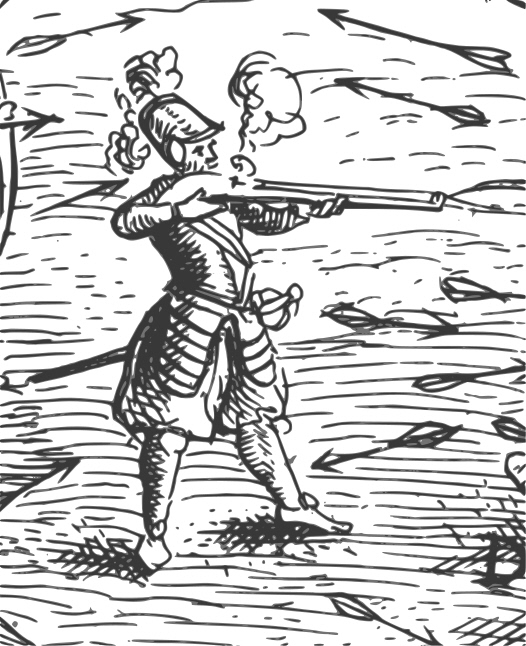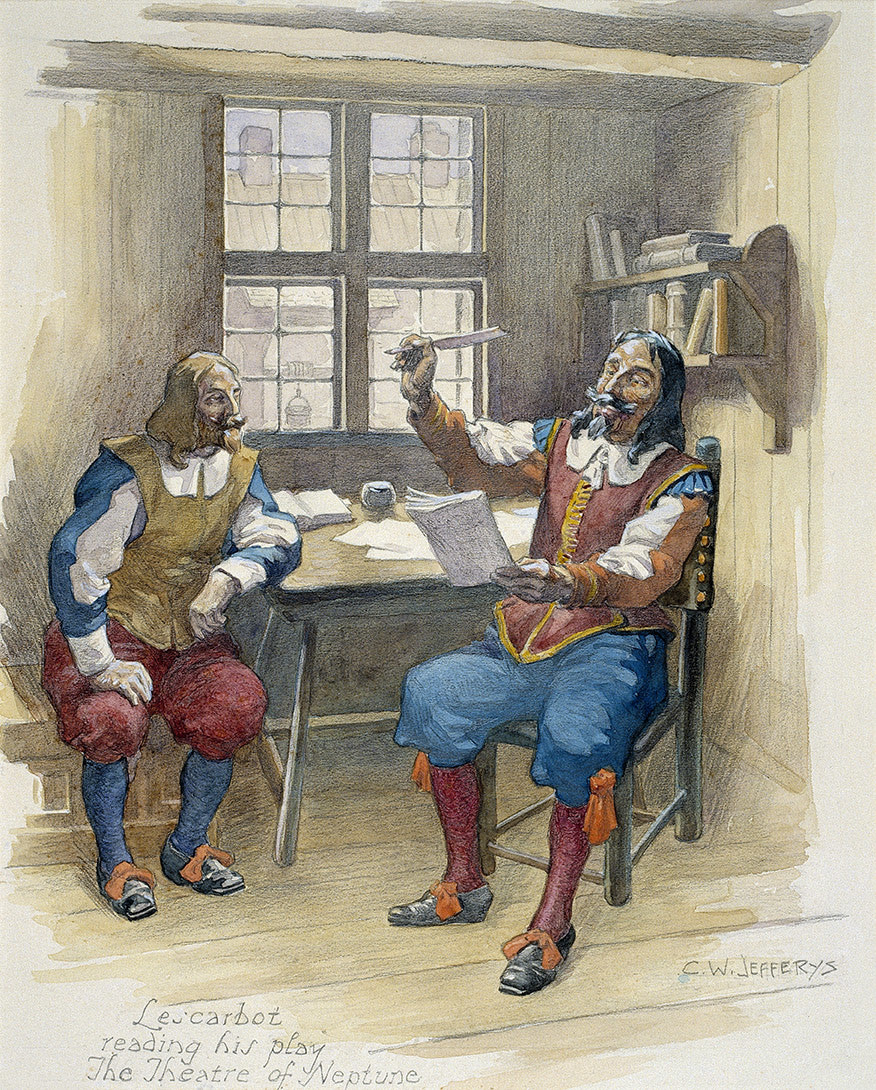|
Henry Percival Biggar
Henry Percival Biggar ( Carrying Place, Ontario, August 9, 1872 — Worplesdon, Surrey, July 25, 1938) was a historian and Canadian archivist. After studies at the Upper Canada College of Toronto, at the University of Toronto and at the University of Oxford, he worked with Archives nationales du Canada and became chief archivist of Canada in Europe from 1905 until his death. Works Expert in the history of New France, he wrote ''The Early Trading Companies of New France'' (1901), co-edited the first book published by the Champlain Society, Lescarbot’s ''History of New France'' (1907), published ''The Precursors of Jacques Cartier'' (1911) as well as ''A Collection of Documents relating to Jacques Cartier and the Sieur de Roberval'' (1930). He also translated and published ''The Voyages of Jacques Cartier'' (1924) and supervised the publication of ''The Works of Samuel de Champlain Samuel de Champlain (; Fichier OrigineFor a detailed analysis of his baptismal record, see Ri ... [...More Info...] [...Related Items...] OR: [Wikipedia] [Google] [Baidu] |
Carrying Place, Ontario
Carrying Place is a community straddling the Quinte West and Prince Edward County border that serves as a gateway to Prince Edward County, Ontario, Canada. Situated northwest of Picton and just south of Trenton, it was named for its location on the portage between the Bay of Quinte and Weller's Bay on Lake Ontario. The Loyalist Parkway passes through the community. Carrying Place is home to the Department of National Defence's LPH-89 antenna farm attached to CFB Trenton and located along Loyalist Parkway south of Twelve O'clock Point. History Before the arrival of Europeans, the local Indigenous people portaged the nine mile stretch of land across the isthmus connecting the Bay of Quinte to Lake Ontario, which gave the place its name. In 1787, the Chiefs of the Mississaugas and Sir John Johnson, Superintendent of Indian Affairs, negotiated a treaty at the Carrying Place. The Missisauga agreed to cede land and a river on the isthmus which would facilitate travel across the is ... [...More Info...] [...Related Items...] OR: [Wikipedia] [Google] [Baidu] |
New France
New France (french: Nouvelle-France) was the area colonized by France in North America, beginning with the exploration of the Gulf of Saint Lawrence by Jacques Cartier in 1534 and ending with the cession of New France to Great Britain and Spain in 1763 under the Treaty of Paris. The vast territory of ''New France'' consisted of five colonies at its peak in 1712, each with its own administration: Canada, the most developed colony, was divided into the districts of Québec, Trois-Rivières, and Montréal; Hudson Bay; Acadie in the northeast; Plaisance on the island of Newfoundland; and Louisiane. It extended from Newfoundland to the Canadian Prairies and from Hudson Bay to the Gulf of Mexico, including all the Great Lakes of North America. In the 16th century, the lands were used primarily to draw from the wealth of natural resources such as furs through trade with the various indigenous peoples. In the seventeenth century, successful settlements began in Acadia and in Quebe ... [...More Info...] [...Related Items...] OR: [Wikipedia] [Google] [Baidu] |
Alumni Of The University Of Oxford
Alumni (singular: alumnus (masculine) or alumna (feminine)) are former students of a school, college, or university who have either attended or graduated in some fashion from the institution. The feminine plural alumnae is sometimes used for groups of women. The word is Latin and means "one who is being (or has been) nourished". The term is not synonymous with "graduate"; one can be an alumnus without graduating (Burt Reynolds, alumnus but not graduate of Florida State, is an example). The term is sometimes used to refer to a former employee or member of an organization, contributor, or inmate. Etymology The Latin noun ''alumnus'' means "foster son" or "pupil". It is derived from PIE ''*h₂el-'' (grow, nourish), and it is a variant of the Latin verb ''alere'' "to nourish".Merriam-Webster: alumnus .. Separate, but from the s ... [...More Info...] [...Related Items...] OR: [Wikipedia] [Google] [Baidu] |
1938 Deaths
Events January * January 1 ** The new constitution of Estonia enters into force, which many consider to be the ending of the Era of Silence and the authoritarian regime. ** State-owned railway networks are created by merger, in France ( SNCF) and the Netherlands (Nederlandse Spoorwegen – NS). * January 20 – King Farouk of Egypt marries Safinaz Zulficar, who becomes Queen Farida, in Cairo. * January 27 – The Honeymoon Bridge at Niagara Falls, New York, collapses as a result of an ice jam. February * February 4 ** Adolf Hitler abolishes the War Ministry and creates the Oberkommando der Wehrmacht (High Command of the Armed Forces), giving him direct control of the German military. In addition, he dismisses political and military leaders considered unsympathetic to his philosophy or policies. General Werner von Fritsch is forced to resign as Commander of Chief of the German Army following accusations of homosexuality, and replaced by General Walther ... [...More Info...] [...Related Items...] OR: [Wikipedia] [Google] [Baidu] |
1872 Births
Year 187 ( CLXXXVII) was a common year starting on Sunday (link will display the full calendar) of the Julian calendar. At the time, it was known as the Year of the Consulship of Quintius and Aelianus (or, less frequently, year 940 '' Ab urbe condita''). The denomination 187 for this year has been used since the early medieval period, when the Anno Domini calendar era became the prevalent method in Europe for naming years. Events By place Roman Empire * Septimius Severus marries Julia Domna (age 17), a Syrian princess, at Lugdunum (modern-day Lyon). She is the youngest daughter of high-priest Julius Bassianus – a descendant of the Royal House of Emesa. Her elder sister is Julia Maesa. * Clodius Albinus defeats the Chatti, a highly organized German tribe that controlled the area that includes the Black Forest. By topic Religion * Olympianus succeeds Pertinax as bishop of Byzantium (until 198). Births * Cao Pi, Chinese emperor of the Cao Wei state (d. 226) * G ... [...More Info...] [...Related Items...] OR: [Wikipedia] [Google] [Baidu] |
Samuel De Champlain
Samuel de Champlain (; Fichier OrigineFor a detailed analysis of his baptismal record, see RitchThe baptism act does not contain information about the age of Samuel, neither his birth date nor his place of birth. – 25 December 1635) was a French colonist, navigator, cartographer, draftsman, soldier, explorer, geographer, ethnologist, diplomat, and chronicler. He made between 21 and 29 trips across the Atlantic Ocean, and founded Quebec, and New France, on 3 July 1608. An important figure in Canadian history, Champlain created the first accurate coastal map during his explorations, and founded various colonial settlements. Born into a family of sailors, Champlain began exploring North America in 1603, under the guidance of his uncle, François Gravé Du Pont. d'Avignon (2008) After 1603, Champlain's life and career consolidated into the path he would follow for the rest of his life. From 1604 to 1607, he participated in the exploration and creation of the first permanent Europ ... [...More Info...] [...Related Items...] OR: [Wikipedia] [Google] [Baidu] |
Jean-François De La Roque De Roberval
Jean-François is a French given name. Notable people bearing the given name include: * Jean-François Carenco (born 1952), French politician * Jean-François Champollion (1790–1832), French Egyptologist * Jean-François Clervoy (born 1958), French engineer and astronaut * Jean-François Corminboeuf (born 1953), Swiss sport sailor * Jean-François Dagenais (born 1975), Canadian music producer * Jean-François David (born 1982), Canadian ice hockey player * Jean-François Gariépy (born 1984), Canadian alt-right political commentator and former neuroscientist * Jean-François Garreaud (1946–2020), French actor * Jean-François de La Harpe (1739–1803), French critic * Jean-François Lyotard (1924-1998), French philosopher * Jean-François Marceau (born 1976), Canadian judoka * Jean-François Marmontel (1723–1799), French historian and writer * Jean-François Martial (1891–1977), Belgian actor * Jean-François Millet (1814–1875), French painter * Jean-François Papill ... [...More Info...] [...Related Items...] OR: [Wikipedia] [Google] [Baidu] |
Jacques Cartier
Jacques Cartier ( , also , , ; br, Jakez Karter; 31 December 14911 September 1557) was a French-Breton maritime explorer for France. Jacques Cartier was the first European to describe and map the Gulf of Saint Lawrence and the shores of the Saint Lawrence River, which he named "The Country of Canadas" after the Iroquoian names for the two big settlements he saw at Stadacona (Quebec City) and at Hochelaga (Montreal Island).. Early life Jacques Cartier was born in 1491 in Saint-Malo, the port on the north-east coast of Brittany. Cartier, who was a respectable mariner, improved his social status in 1520 by marrying Mary Catherine des Granches, member of a leading aristocratic family. His good name in Saint-Malo is recognized by its frequent appearance in baptismal registers as godfather or witness. First voyage (1534) In 1534, two years after the Duchy of Brittany was formally united with France in the Edict of Union, Cartier was introduced to King Francis I by Jean Le V ... [...More Info...] [...Related Items...] OR: [Wikipedia] [Google] [Baidu] |
Lescarbot
Marc Lescarbot (c. 1570–1641) was a French author, poet and lawyer. He is best known for his '' Histoire de la Nouvelle-France'' (1609), based on his expedition to Acadia (1606–1607) and research into French exploration in North America. Considered one of the first great books in the history of Canada, it was printed in three editions, and was translated into German. Lescarbot also wrote numerous poems. His dramatic poem '' Théâtre de Neptune'' was performed at Port Royal as what the French claim was the first European theatrical production in North America outside of New Spain. Bernardino de Sahagún, and other 16th-century Spanish friars in Mexico, created several theatrical productions, such as ''Autos Sacramentales.'' Biography Early life Lescarbot was born in Vervins,, accessed 2 Wednesday 2011 and his family was said to be from nearby Guise in Picardy. He wrote that his ancestors originated in Saint-Pol-de-Léon, Brittany. He first studied at the college in Ver ... [...More Info...] [...Related Items...] OR: [Wikipedia] [Google] [Baidu] |
Champlain Society
The Champlain Society seeks to advance knowledge of Canadian history through the publication of scholarly books (both digital and print) of primary records of voyages, travels, correspondence, diaries and governmental documents and memoranda. The Society is named after Samuel de Champlain (1574–1635), the explorer, founder of New France and author of numerous exploratory narratives. The Society is a registered, not-for-profit charity administered by a voluntary and unpaid team of council members and officers. It was chartered in Ontario in 1927. Membership is open to all who have an interest in Canadian history. It is based in Toronto, Ontario. Foundation The Champlain Society was created following a lecture to the Canadian Club in Toronto in March 1905 on "History and Patriotism" given by Charles W. Colby, chair of the Department of History at McGill University. Colby had hailed the various societies in the United Kingdom and the United States dedicated to reprinting key docume ... [...More Info...] [...Related Items...] OR: [Wikipedia] [Google] [Baidu] |
History
History (derived ) is the systematic study and the documentation of the human activity. The time period of event before the History of writing#Inventions of writing, invention of writing systems is considered prehistory. "History" is an umbrella term comprising past events as well as the memory, discovery, collection, organization, presentation, and interpretation of these events. Historians seek knowledge of the past using historical sources such as written documents, oral accounts, art and material artifacts, and ecological markers. History is not complete and still has debatable mysteries. History is also an Discipline (academia), academic discipline which uses narrative to describe, examine, question, and analyze past events, and investigate their patterns of cause and effect. Historians often debate which narrative best explains an event, as well as the significance of different causes and effects. Historians also debate the historiography, nature of history as an end in ... [...More Info...] [...Related Items...] OR: [Wikipedia] [Google] [Baidu] |






.jpg)